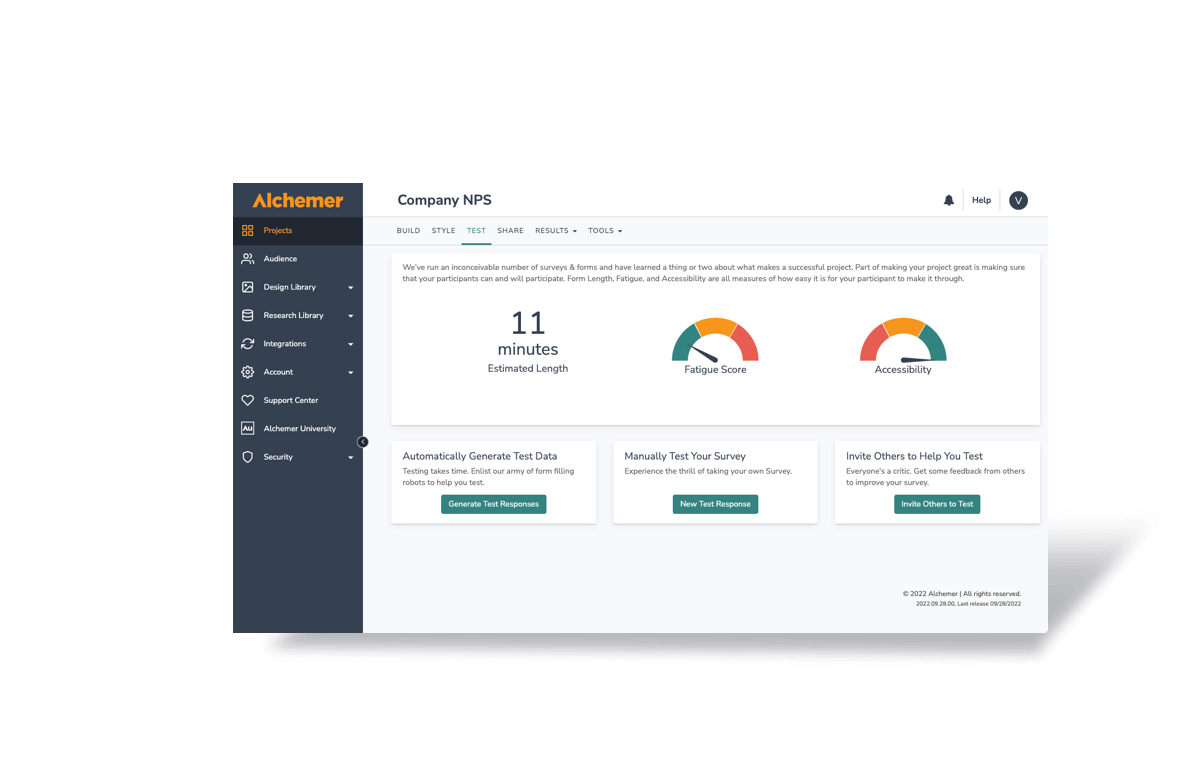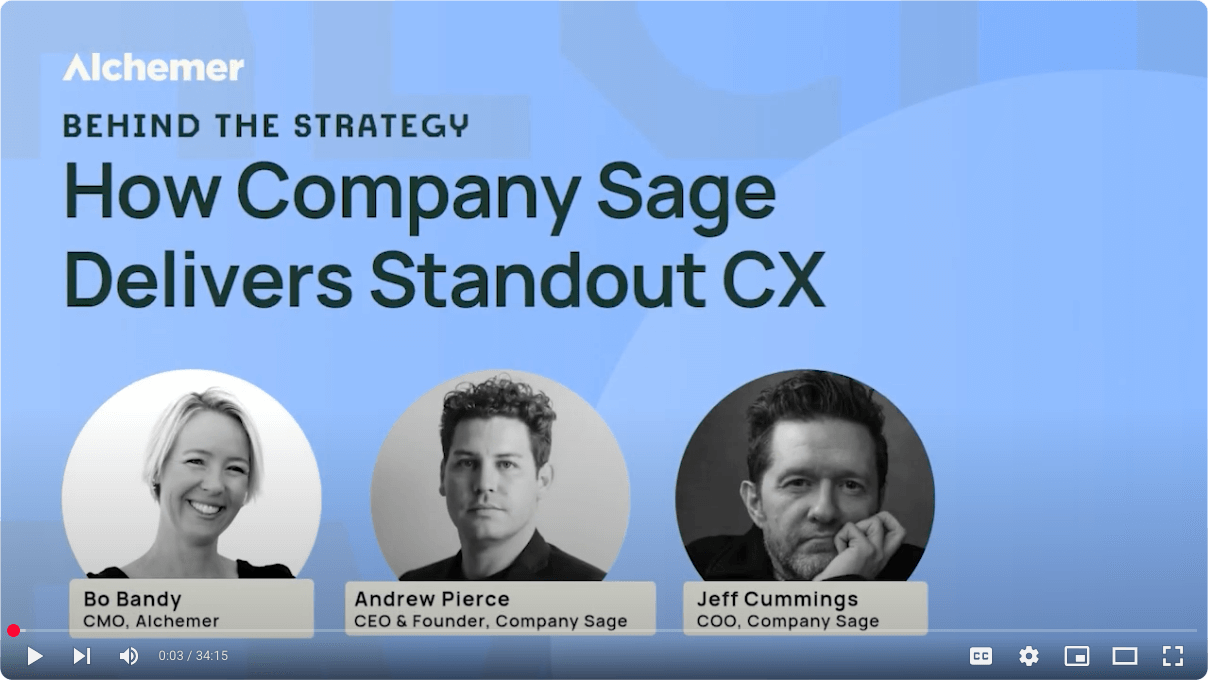A survey project is not over until you act on your data!
According to the Alchemer Benchmark Guide Survey, 51% of online surveyors frequently act on their online survey data, but others only act on their data sometimes (32%), infrequently (5%) or never (1%)!1
If you want to make sure your survey is successful, you need to be able to demonstrate that its results drove change of some kind. Maybe you launched a new product, created a new system for handling customer feedback, or identified ways to improve employee happiness.
Your survey data will light the right path, but you and your stakeholders are the ones who need to take the first steps down that path. Here are some key ways to make sure that happens.
Survey Results that Drive Action
Often, the person writing, fielding, and analyzing survey data is not the person that takes action on that data.
People taking action are often called a stakeholders, and while they are often the source of a project, sometimes they don’t join a project until all the data has been collected and analyzed.
Stakeholders can be someone external to your organization, or someone internal. When they’re uninvolved until the final steps of a survey, it’s very easy for them to take the results and put them on a shelf to gather dust.
By making sure that they are informed about each and every piece of your survey, you’ll give yourself a much better chance of providing a final result that drives actions.
4 Tips for More Actionable Surveys
By bringing stakeholders into every stage of the survey process, you’ll have an audience who is both engaged in the project and invested in its ultimate success. This investment will make them tied to the data your survey produces, and more likely to take the actionable steps laid out in your findings.
Follow these four tips to involve stakeholders throughout the survey cycle:
- Involve stakeholders in brainstorming the survey goals and objectives: Not only will they have a clear understanding of the survey’s goal, they’ll also be able to define the individual objectives that the survey hopes to investigate.
- Make sure they have a presence while you are developing the actual survey questions: It can be challenging to turn those objectives into unbiased questions that can produce the kind of results that you can act on. Let the stakeholders see this process, and give them a hand in working through the questions that you’ll be asking respondents.
- Sign them up to test the online survey: Who couldn’t use more testers? Offering them the opportunity to test a survey draft gives stakeholders a chance to see the final survey product, as well as to experience the survey from the respondents’ point of view.
- Constantly remind them of the survey’s actions and objectives: Planning the actions from the beginning is key. Define your plan of action at the brainstorming phase, and make sure that the stakeholders agree to take the outlined actions if the results point you in that direction. Keep the focus on ultimate actions by reminding them of these plans during every phase of the survey project.
Consistently (and Constantly) Encourage Action
Once the survey is done and you’ve completed your data analysis and presentation, it’s tempting to think that your work is done.
It isn’t.
Encouraging action is your final (and most important) task.
You should reinforce the points that your data revealed, recommend appropriate action, and make sure those that need to take the action feel empowered to act. If your stakeholders feel limited in the steps they can take, it doesn’t matter how clear your data is.
Monitor the status of your recommended steps constantly. You may feel like a gnat buzzing around your stakeholders, but a little encouragement can be the difference between wasted data and data that makes an impact on the bottom line.
To help facilitate the action taking process, establish a time frame in which results can be expected.
Again, you may need to regularly follow up on what action has been taken, but a deadline can provide an objective end point for stakeholders to complete their steps.
Action Gives Value to Survey Results
I can’t stress enough how important it is to encourage action based on your surveys.
Throughout the survey cycle there are a number of stages where you could call a project done. But the work is not truly done until you act on your data.
The action that you and your stakeholders take on your survey results is what ultimately gives value to your survey.
It is the tangible results of all the work that you have done.
The true results of your overall project, as opposed to the survey itself, are successfully encouraging action based on your survey results and monitoring the results of these actions.
1Source: Alchemer Market Research Benchmark Guide: 2012, Survey Techniques Survey, How frequently does your organization (or your client) act on the results of your surveys?, n=1,083 Total Sample




